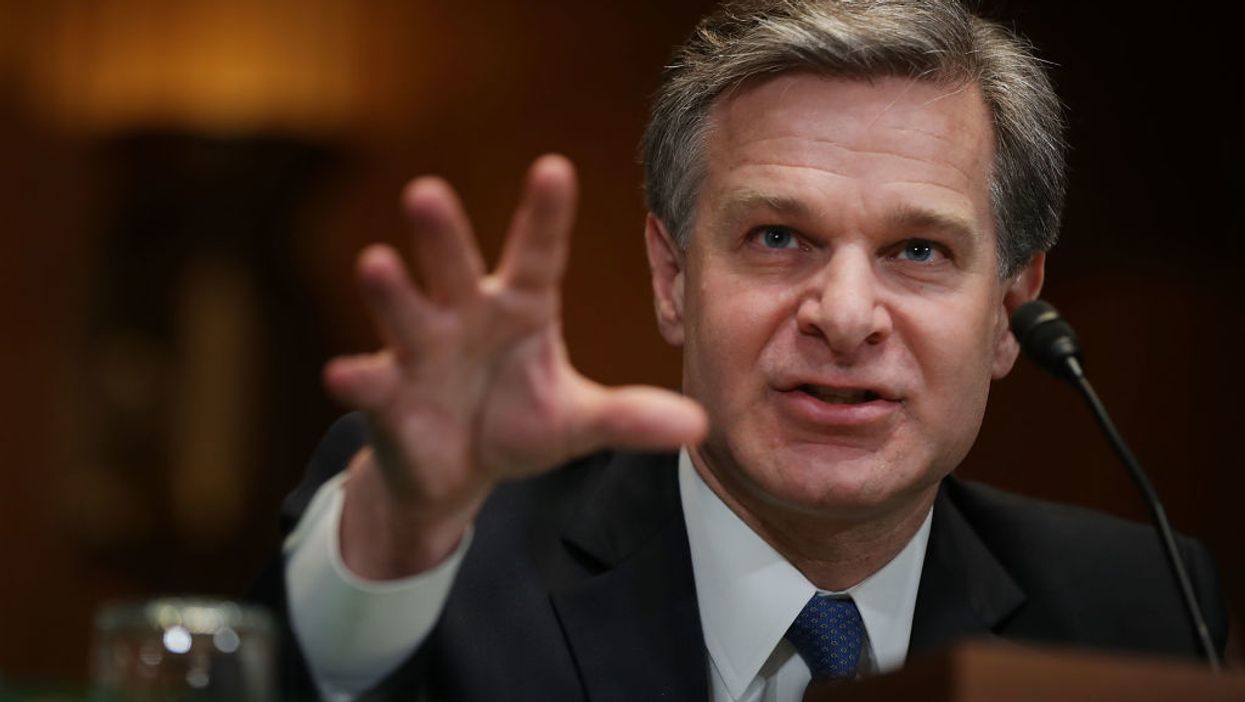Russia has switched tactics for undermining American democracy this year, focusing on the spread of misinformation instead of computer hacking to influence the presidential contest, FBI Director Christopher Wray told Congress on Thursday.
Moscow is using social media, online media outlets and other tools to spread misinformation and sow "divisiveness and discord" in the electorate in a bid to undermine confidence in the election, he said. And operatives have started using against Joe Biden many of the same techniques they deployed to spread falsities about Hillary Clinton four years ago.
The "malign foreign influence" campaign is designed not only "to denigrate" the Democratic nominee but also "what the Russians see as an anti-Russia establishment," Wray testified in one of the most explicit public descriptions yet of the Russian effort — one that almost totally contradicts the president's own descriptions about the foreign threat to the election.
Wray told the House Homeland Security Committee the FBI is working successfully with the largest social media companies, including Facebook and Twitter, to remove phony accounts created by Russian operatives.
He said the key is to remove the accounts quickly before they have a chance to gain a lot of attention. "Misinformation or disinformation or fake information is only effective if it seems credible," Wray said, and the more that information gets passed around the more people come to view it as legitimate.
Since the revelation that Russia tried — mostly without success — to break into election computer systems across the country during the 2016 campaign, federal, state and local officials have spent countless hours and hundreds of millions in tax dollars trying to change voting practices and strengthen protections for election systems.
At the same time, some election security experts have been predicting for more than a year that the Russians would likely switch their focus for 2020 away from hacking and toward disinformation.
Wray's testimony affirming that shift was one of a handful of election security developments on Capitol Hill as the election countdown clock moved past the seven-weeks-to-go mark
In the Senate on Tuesday, Minority Leader Chuck Schumer and former presidential candidate Bernie Sanders pressed Majority Leader Mitch McConnell to appoint a bipartisan committee focused on election security. Noting the "great deal of concern about possible confusion and chaos" about the counting of votes, the Democrats' letter said hearings before such a panel could rebuild public confidence in the integrity of the election, which Trump has openly sought to undermine with his attacks on mail voting.
And the House on Wednesday passed a bill that would mandate federal research on issues related to election security. Among the topics that would be studied are online voting, voter privacy and data protection.
The measure, sent to the Senate on a voice vote, would also add electronic poll books and voter registration databases to the types of equipment for which the federal Election Assistance Commission sets standards. The agency's mandate now only covers hardware for casting ballots.
National security agencies have not seen any evidence Russia is trying to break into any of those election systems, Wray said.
His testimony was delivered in the shadow of recent efforts by Trump and other top administration officials to play up the theory that China is meddling to get Biden elected, while downplaying reports that Russia is working to help Trump win again.
Facebook announced this month, for example, that a troll group that was part of Russia's attempts in 2016 is trying to target Americans again.
The president continues to dismiss as a hoax the intelligence community's finding that Russia worked to help him win the White House in 2016.




















Trump & Hegseth gave Mark Kelly a huge 2028 gift